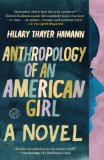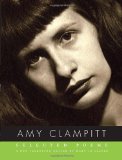Summary | Excerpt | Reviews | Beyond the book | Read-Alikes | Genres & Themes | Author Bio

A dazzling story of obsessive love emerges in Cynthia Zarin's luminous new book inspired and inhabited by the title character of Nabokov’s novel Ada, or Ardor: A Family Chronicle, who was the lifelong love of her half brother, Van.
These electric poems are set in a Nabokovian landscape of memory in which real places, people, and things—the exploration of the Hudson River, Edwardian London, sunflowers, Chekhov, Harlem, decks of cards, the death of Solzhenitsyn, morpho butterflies—collide with the speaker's own protean tale of desire and loss.
With a string of brilliant contemporary sonnets as its spine, the book is a headlong display of mastery and sorrow: in the opening poem, "Birch," the poet writes "Abide with me, arrive / at its skinned branches, its arms pulled / from the sapling . . . the birch all elbows, taking us in." But Zarin does not "Destroy and forget" as Nabokov's witty, tender Ada would have her do; rather, as she writes in "Fugue: Pilgrim Valley," "The past's / clear colors make the future dim, Lethe's / swale lined with willow twigs."
Like all enduring love poetry, these poems are a gorgeous refusal to forget.
Reading Vladimir Nabokov's six-hundred page magnum opus, Ada, is much like climbing to the top of a monument, say, Washington, D.C.'s famous obelisk, or Prague's Astronomical Clock Tower: the steep, vertiginous ascent ultimately pays off in a breathtaking view of the landscape below, a landscape you have traversed within the twin cocoons of stairwell and elevator, or in this case, sentence and paragraph, to reach a glorious summit. In other words, it's not a beach read. Cynthia Zarin's bold collection inspired by this tome weighs in at a mere 55 pages of poems, but it stands as its own achievement in its lush distillation of Nabokov's pet themes: time, memory, passion, and the triumph of artifice over fact...continued
Full Review
(971 words)
This review is available to non-members for a limited time. For full access,
become a member today.
(Reviewed by Marnie Colton).
Ada, or Ardor: A Family Chronicle, by Vladimir Nabokov, 
Read more about Ada:
This "beyond the book" feature is available to non-members for a limited time. Join today for full access.

If you liked The Ada Poems, try these:

Anthropology of an American Girl
by Hilary Thayer Hamann
Published 2011
A moving depiction of the transformative power of first love, Hamann's first novel follows Eveline Auerbach from her high school years in East Hampton, New York, in the 1970s through her early adulthood in the moneyed, high-pressured Manhattan of the 1980s.

by Amy Clampitt
Published 2010
Here is a treasure of Amy Clampitt's verse, for those who are reading her for the first time, as well as for those who have long admired her.
The only real blind person at Christmas-time is he who has not Christmas in his heart.
Click Here to find out who said this, as well as discovering other famous literary quotes!